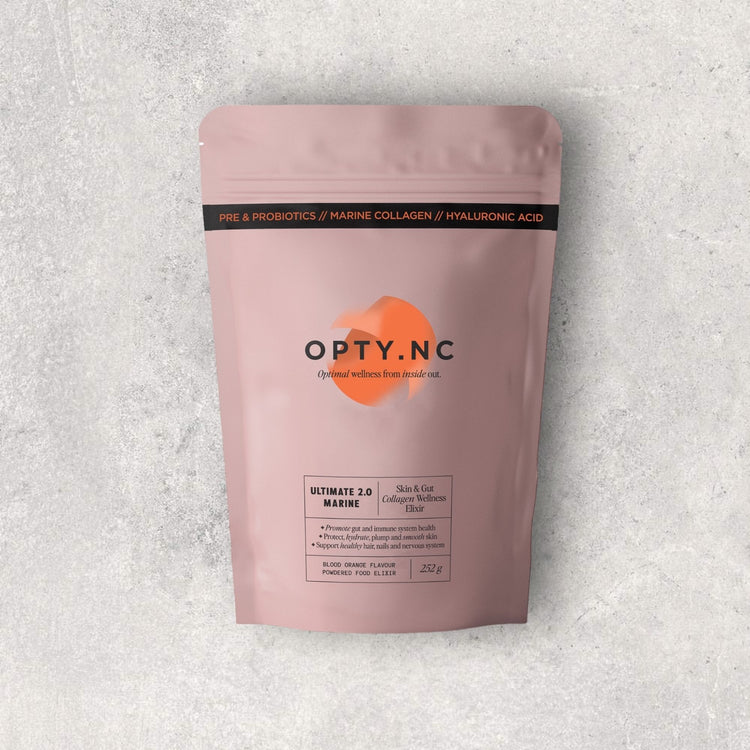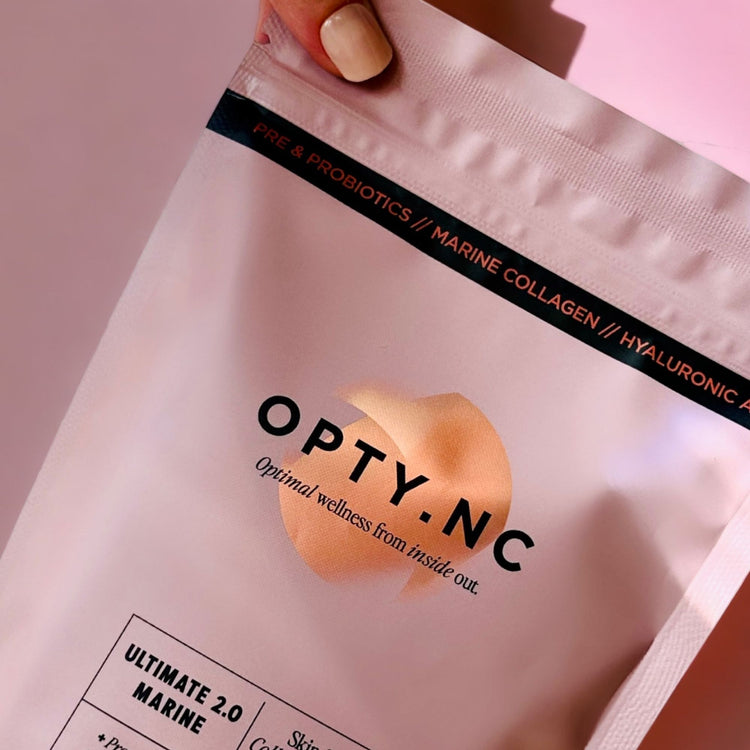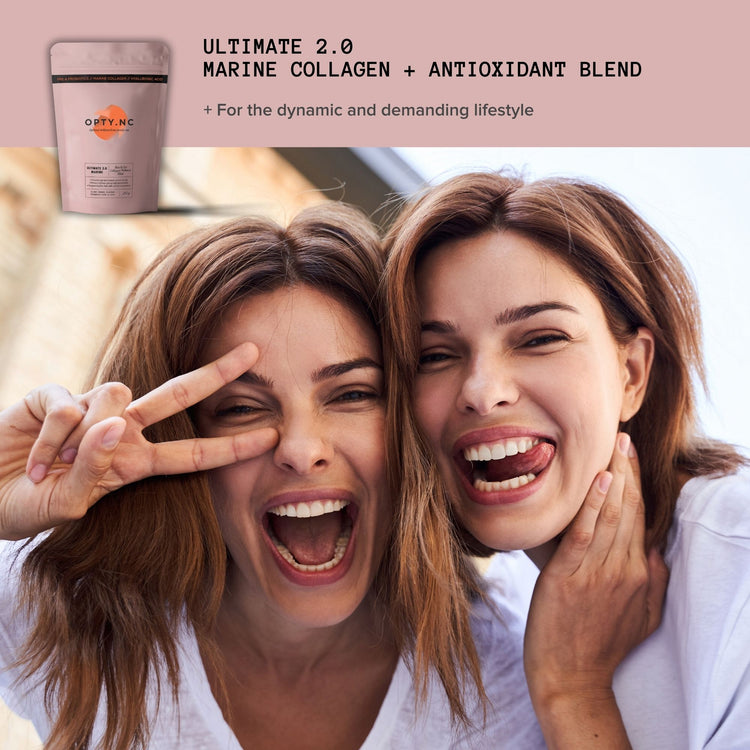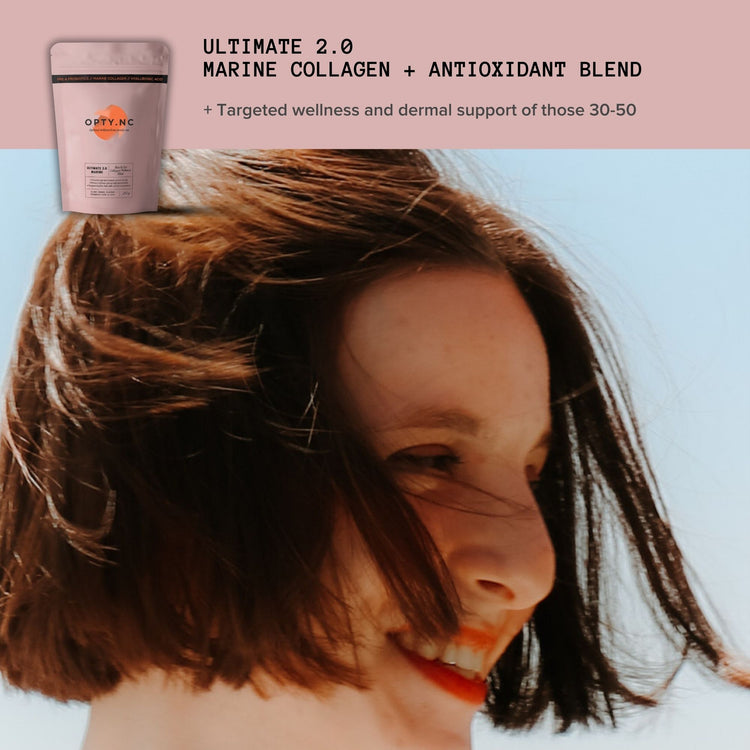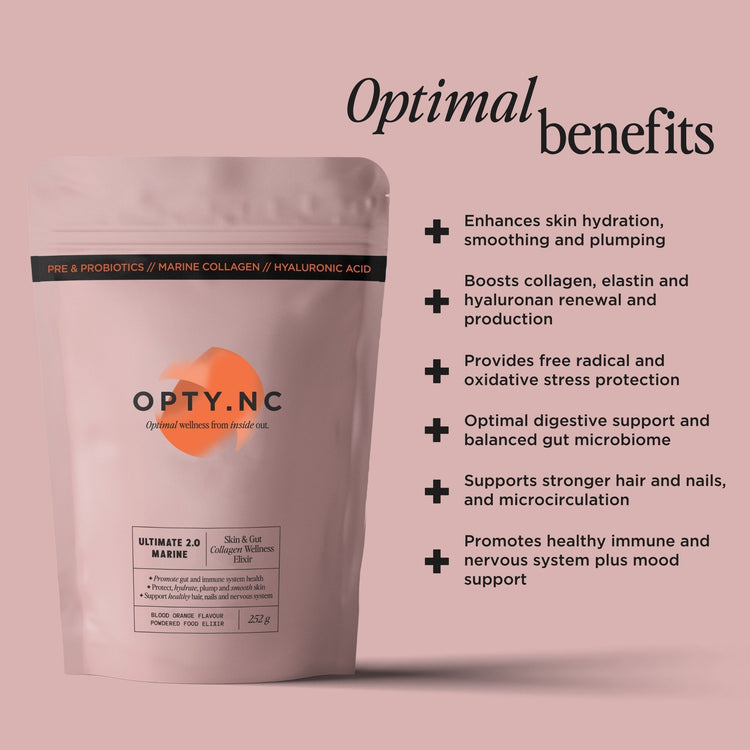Blog edited August 10, 2022
Collagen is often called the "VIP of proteins" due to its abundance found in the body and the many vital roles it plays in promoting health and beauty. Without collagen, our bodies would not look or feel their best. By understanding the role collagen plays in our bodies, we can better appreciate all the benefits this protein offers.

What is collagen?
Collagen is the main structural protein in the human body and accounts for around 30% of its total protein. It is the primary building block for skin, hair, nails, muscles, and connective tissues. But collagen is more than skin-deep: it is the foundation of our tendons, joints, cartilage, bones, arteries, and organs.
Collagen is a naturally occurring protein that consists of amino acids. These amino acids are the building blocks of all proteins, and collagen fibers are long strands of these amino acids produced by fibroblasts. The fibers provide structure and help retain moisture in connective tissue, contributing to skin elasticity, fullness, and firmness. Therefore, collagen is essential for healthy, youthful-looking skin. But that's just the beginning.
Why is collagen important?
As we age, the production of collagen begins to slow down. This decrease can start in our mid-to-late 20s, and by the time we reach our 30s, the quantity, and quality of collagen produced in our skin diminish by 1% each year. The loss of collagen can lead to visible signs of aging such as wrinkles, sagging skin, and joint pain.

Many factors contribute to the decreased production of collagen as we age. These include aging itself, lifestyle choices, and environmental factors. For example, exposure to ultraviolet (UV) light from the sun can damage the collagen fibers in our skin, causing them to become weak and fragmented. This leads to increased oxidative stress on the skin, which can further contribute to the visible signs of aging, such as fine lines and wrinkles, sagging skin, loss of elasticity, and dehydration.
In addition, certain lifestyle choices such as smoking cigarettes can also impact collagen production. Cigarette smoke contains toxins that can damage collagen fibers and reduce skin elasticity. Therefore, knowing how internal and external factors can affect collagen production in our bodies as we age is crucial. With this knowledge, we can take steps to protect our skin and slow down the visible signs of aging.

What are the different types of collagen?
Five main types of collagen found in the human body make up the majority of the 28 varieties of collagen. Collagen in human skin is 90 percent comprised of type 1 collagen. In addition to skin, type 1 collagen is also present in bones and blood vessels.MARINE COLLAGEN
Marine collagen is your go-to if you're looking to supplement collagen for healthier, more beautiful-looking skin. Made from the skin of fish, marine collagen is a high-quality source of type 1 collagen peptides.Not only does this match the collagen mainly comprising our skin, but it also has low molecular weight particles. These are smaller in size and more easily absorbed across the digestive tract, ensuring the highest bioavailability (ease of absorption and utilization in the body). Marine collagen is also a potent source of hydroxyproline, proline, and glycine – the building blocks used by the body to create new collagen and elastin fibers.
Extensive testing in human clinical trials has shown marine collagen to increase the production of collagen and elastin in the skin, reduce the appearance of fine lines and wrinkles, and improve skin hydration and texture. It also reduces oxidative stress (a factor in skin aging) and enhances the strength of hair and nails.

Other forms of collagen:
Several other sources of collagen in various collagen supplements are available on the market. While these sources may be a cheaper alternative, the critical factor to consider when selecting the proper collagen is bioavailability (how much collagen reaches the tissues where it is active). Using a collagen supplement that doesn't contain the same type 1 collagen comprising our skin is futile.
BOVINE COLLAGEN
Bovine collagen, made from the hide and bones of beef cattle, also contains relatively high quantities of type 1 collagen; however, it also contains type 3. Studies show its ability to support joint and muscle health and speed recovery after exercise.PORCINE COLLAGEN
Made from pig skin, porcine collagen is a combination of type 1 and 3 collagen and may support joint and muscle health. It has also been the subject of small studies examining its benefits on skin health; however, the effect is still undetermined.POULTRY COLLAGEN
Poultry collagen consists primarily of type 4 collagen made from chicken cartilage, a less abundant collagen found in our tendons and cartilage.
How can I get more collagen in my diet?
There are many ways to increase collagen production in the body, including eating collagen-boosting foods and taking collagen supplements.
Foods rich in collagen include bone broth, chicken, fish, leafy greens, citrus fruits, berries, and dark chocolate. Including these foods in your diet can help to increase collagen production and promote overall health and beauty.
Collagen supplements have become increasingly popular as a way to increase collagen production and combat the signs of aging. In addition to its anti-aging benefits, collagen plays an essential role in gut health. It helps to seal the gaps between our cells and prevent "leaky gut syndrome." Collagen also helps reduce inflammation in the gut, which can lead to a variety of gastrointestinal disorders. Collagen supplements are available in various forms, including powders, capsules, and liquids. You can also find collagen in many topical products, such as creams and serums.

But before you start a collagen supplement, it's important to understand that there are different types of collagen – both produced within our bodies and in supplement form that we put into our bodies. Supplementing the right collagen for your skin will have the best results – like the exact key for the matching lock.
How do I choose the right collagen supplement?
For collagen supplements to be effective, they must be in a form the body can absorb. In its raw form, collagen molecules are too big and need to be broken down into small peptides, a process called hydrolyzation. Hydrolyzed collagen is more bioavailable, meaning you will see results more quickly.
OPTY.NC specifically uses hydrolyzed marine collagen to ensure your body can absorb our nutrient-dense supplement faster, and produce more, better quality collagen resulting in more youthful, radiant skin.
Also, transparency and sustainability are key components when selecting a supplement. Look for brands that use grass-fed, pasture-raised, or wild-caught sources of collagen. These brands tend to be more transparent about their sourcing and can provide you with peace of mind that the product is environmentally friendly and humane.
At OPTY.NC we use only sustainable, Marine Stewardship Council (MSC)-certified marine collagen peptides in our collagen supplements. This collagen is produced exclusively from deep sea cod skin (Gadus morhua), harvested from the pristine waters of the North Atlantic Ocean. It provides a pure source of high-quality, 100 percent natural collagen peptides, batch tested to be low in mercury and heavy metals.
Bottom line...
When it comes to collagen supplements, quality matters as much as sourcing, so make sure to choose a brand with high-quality ingredients and a good reputation for effectiveness. With so many options on the market, doing your research beforehand can help you find the right collagen supplement.











